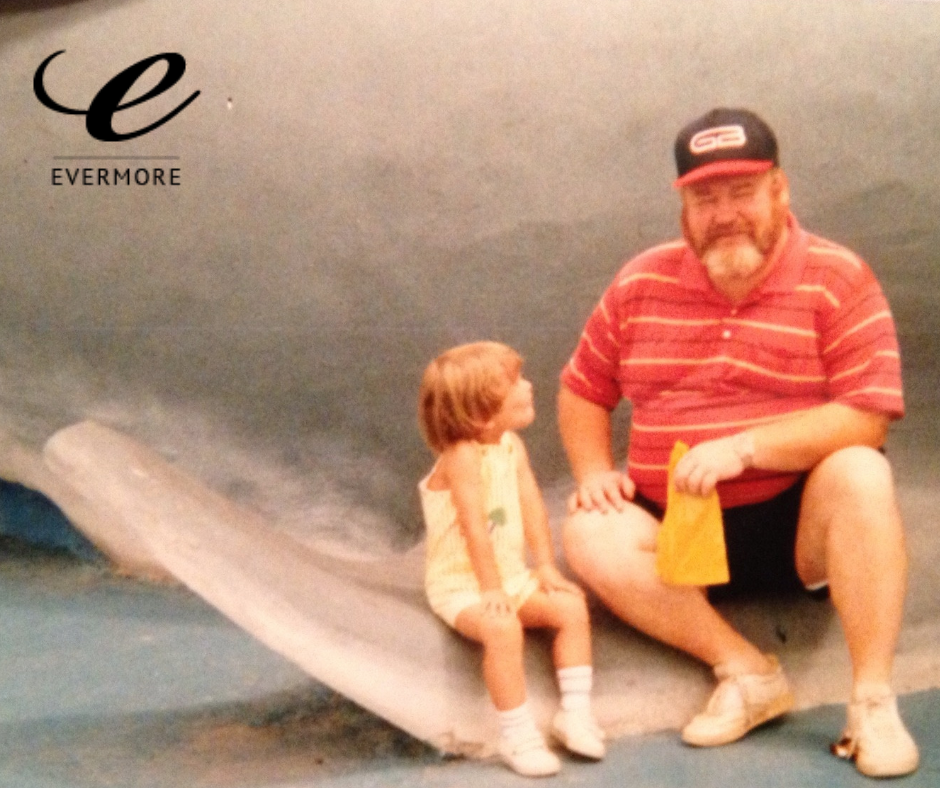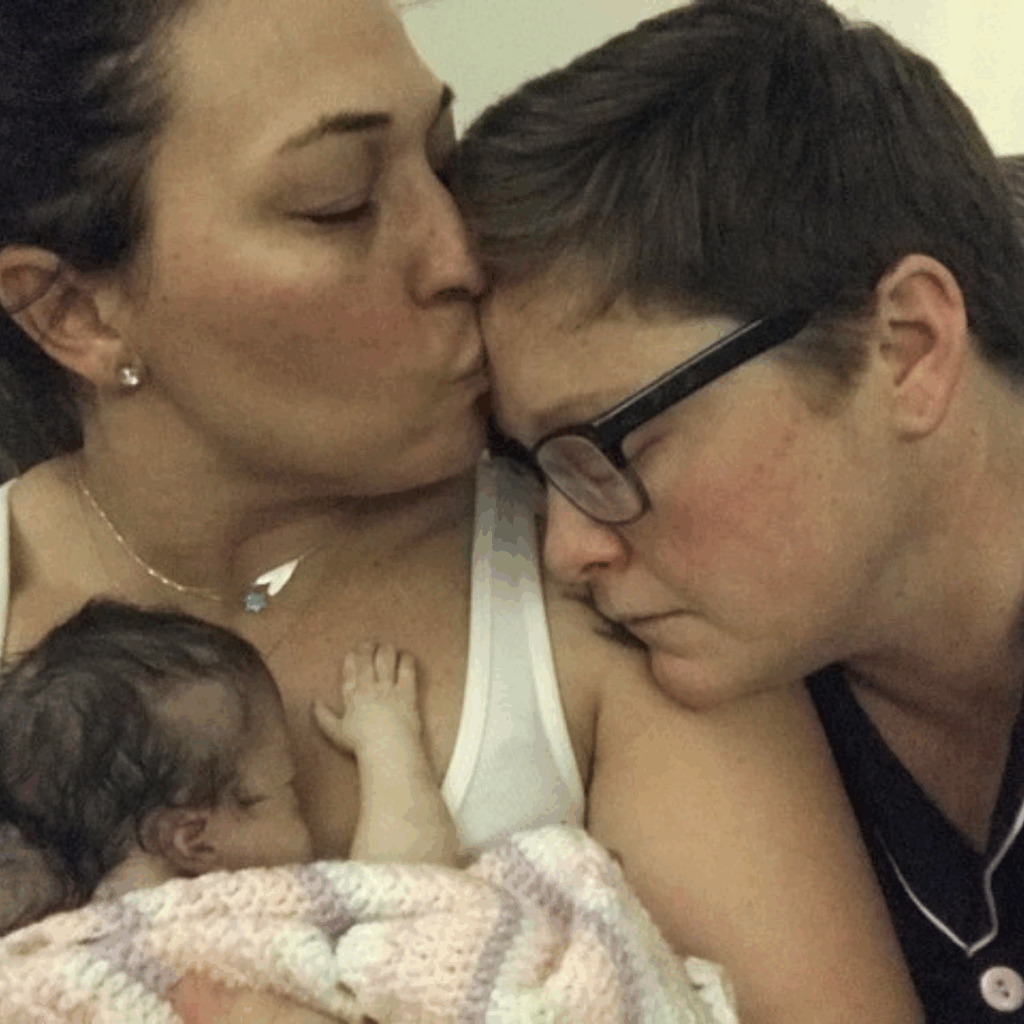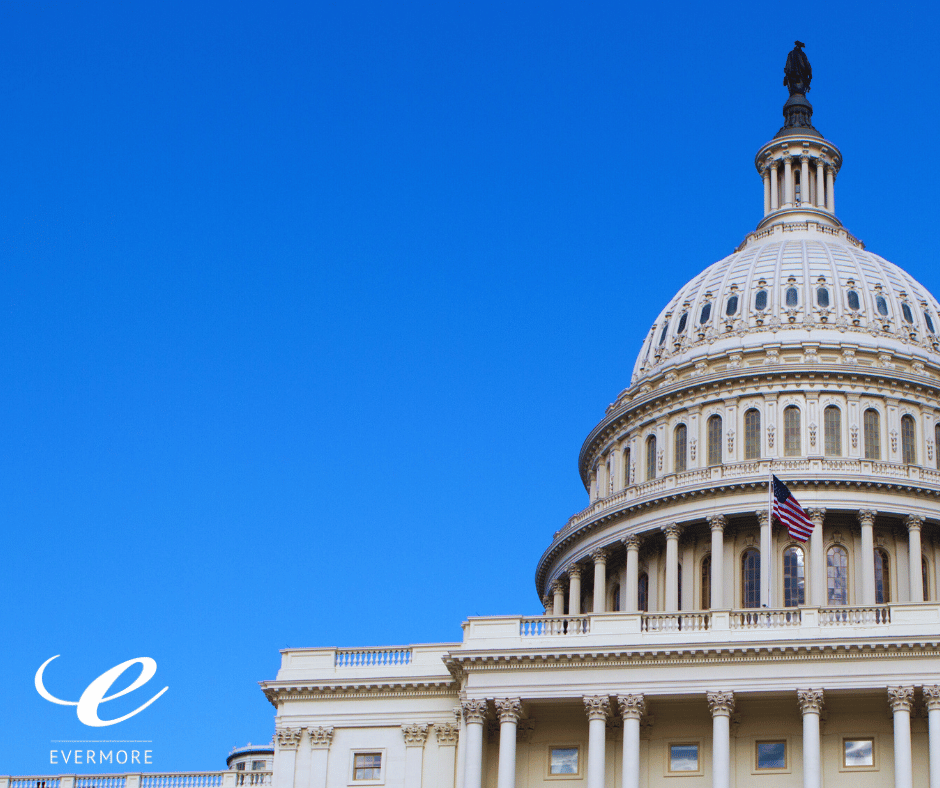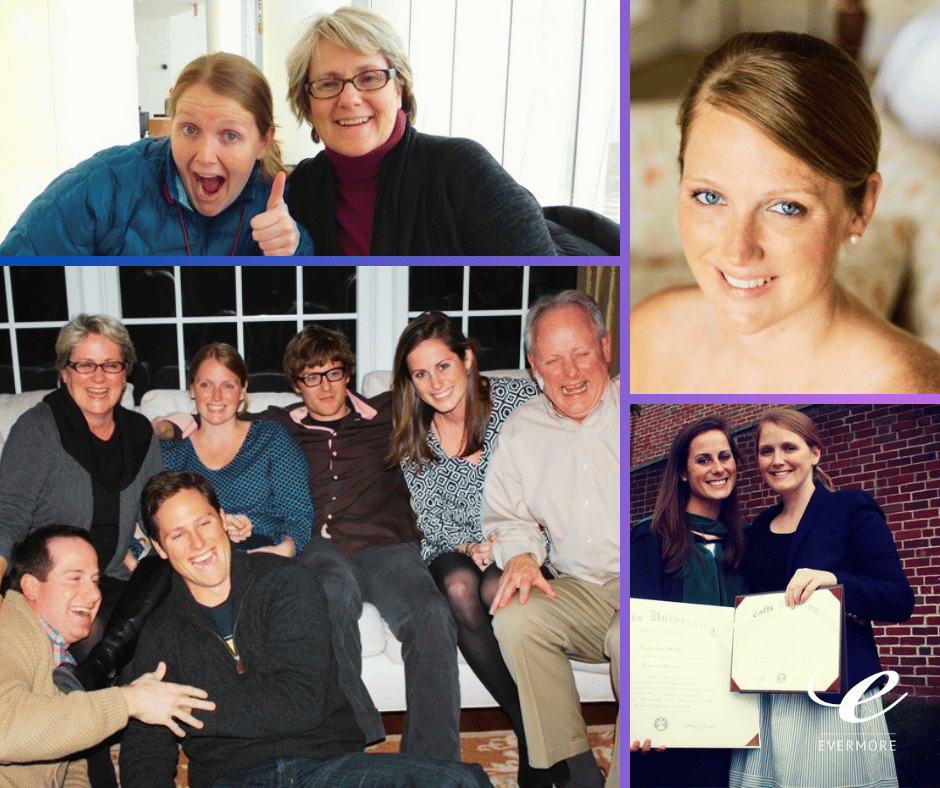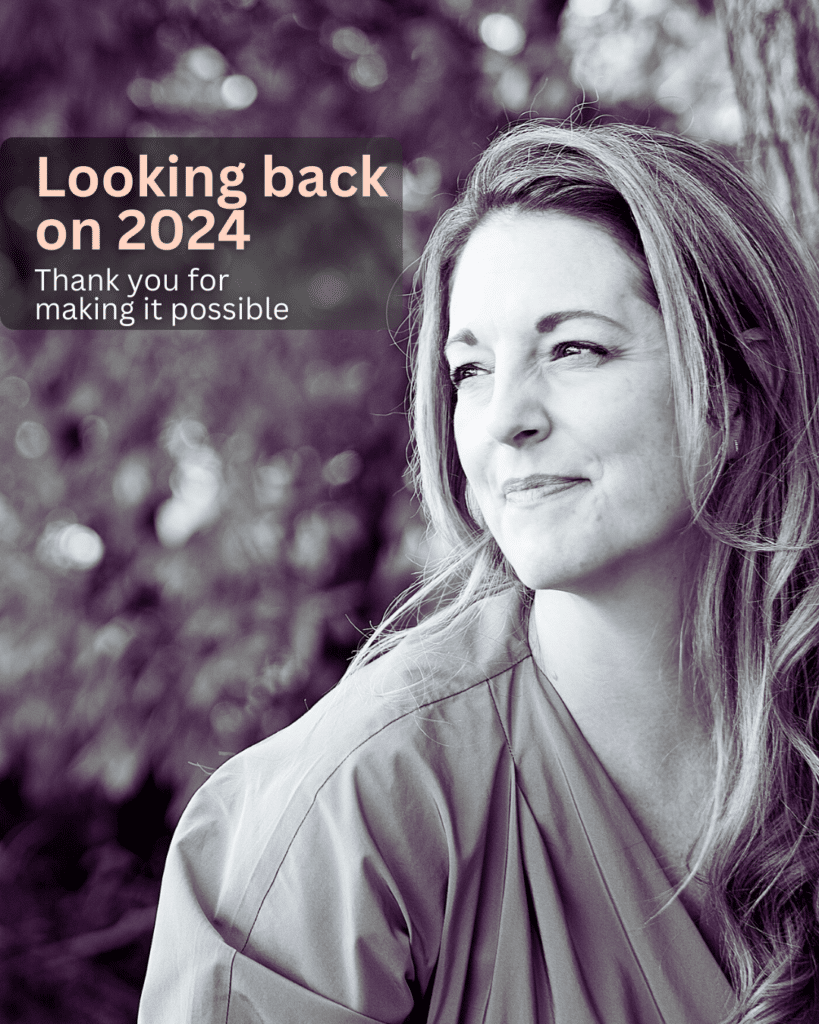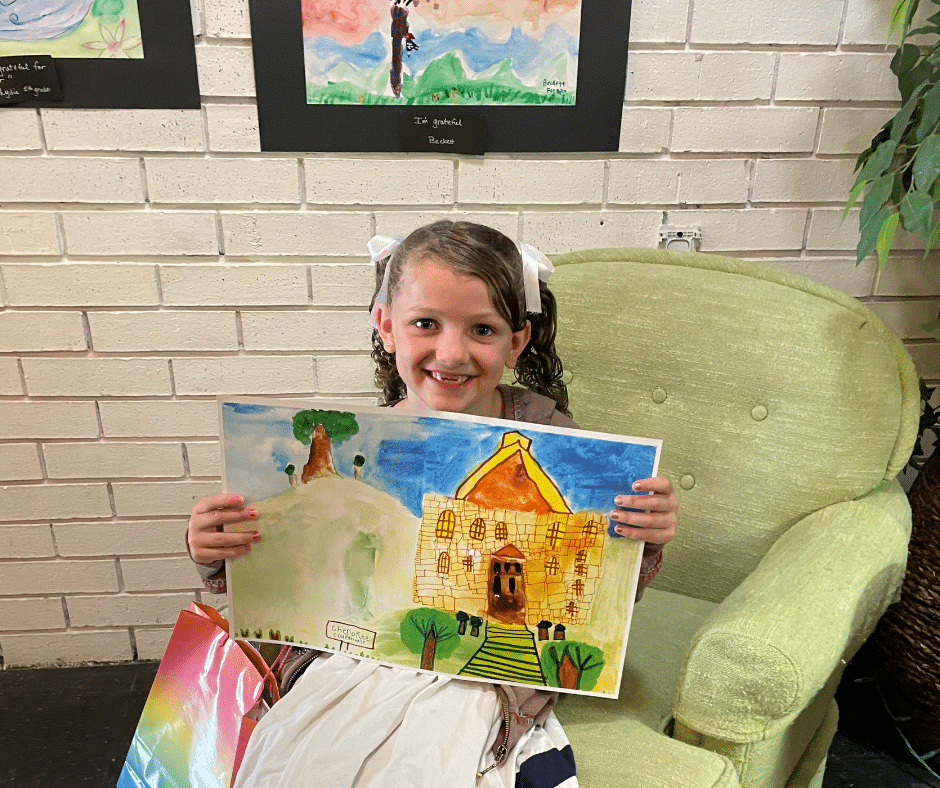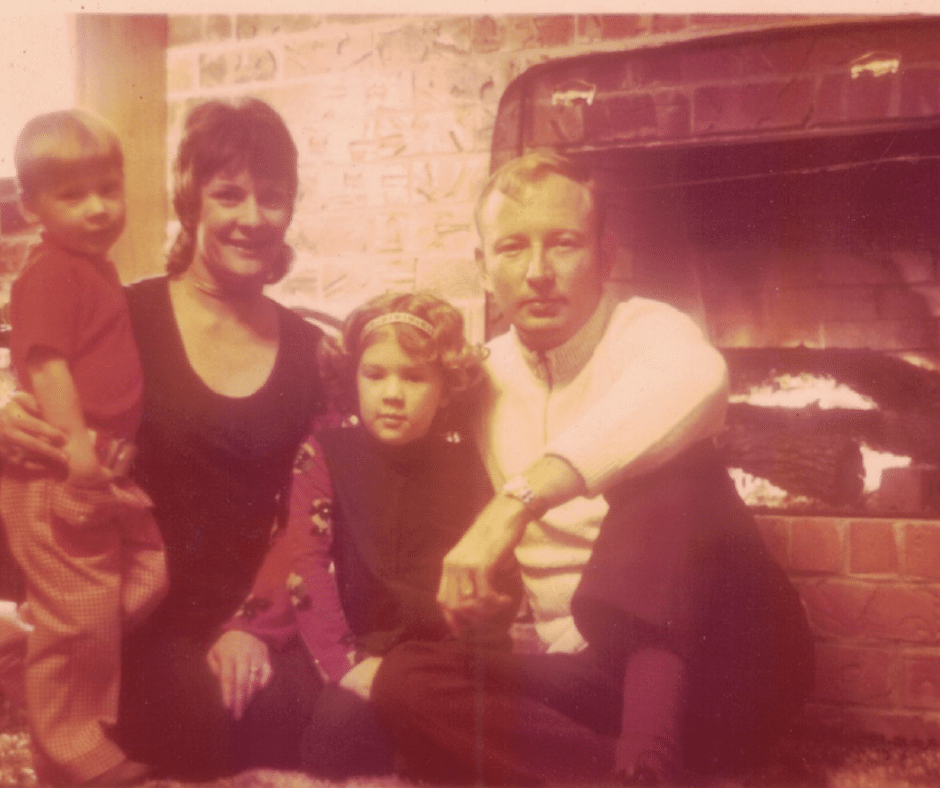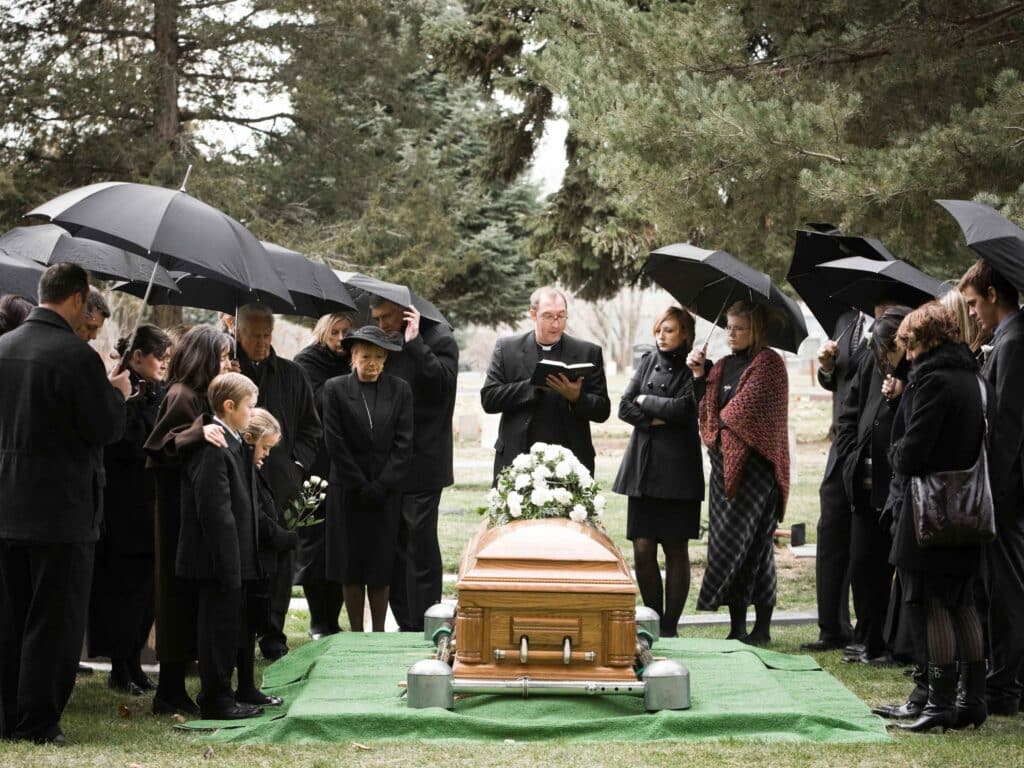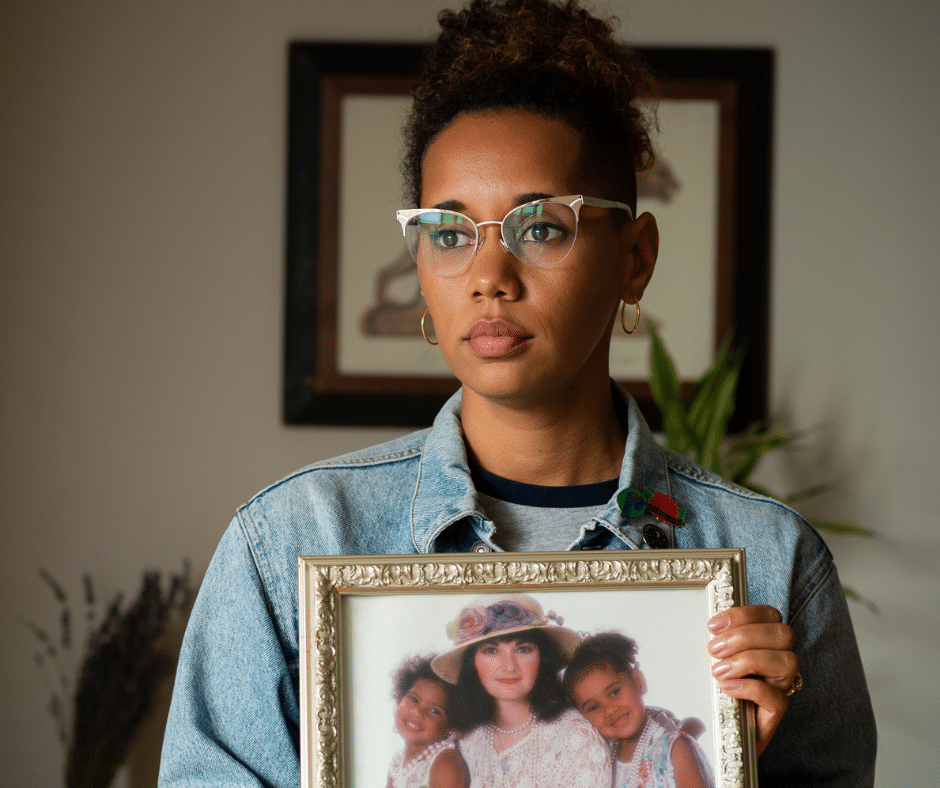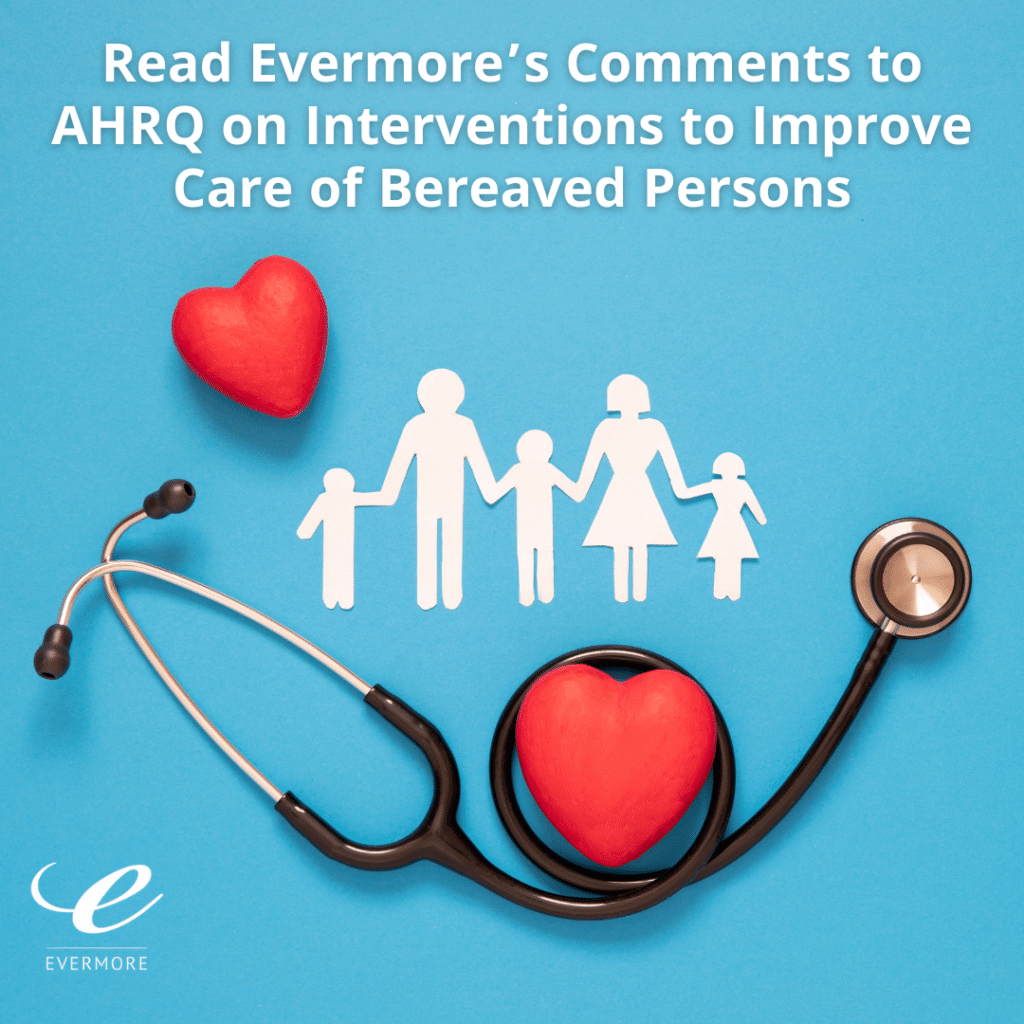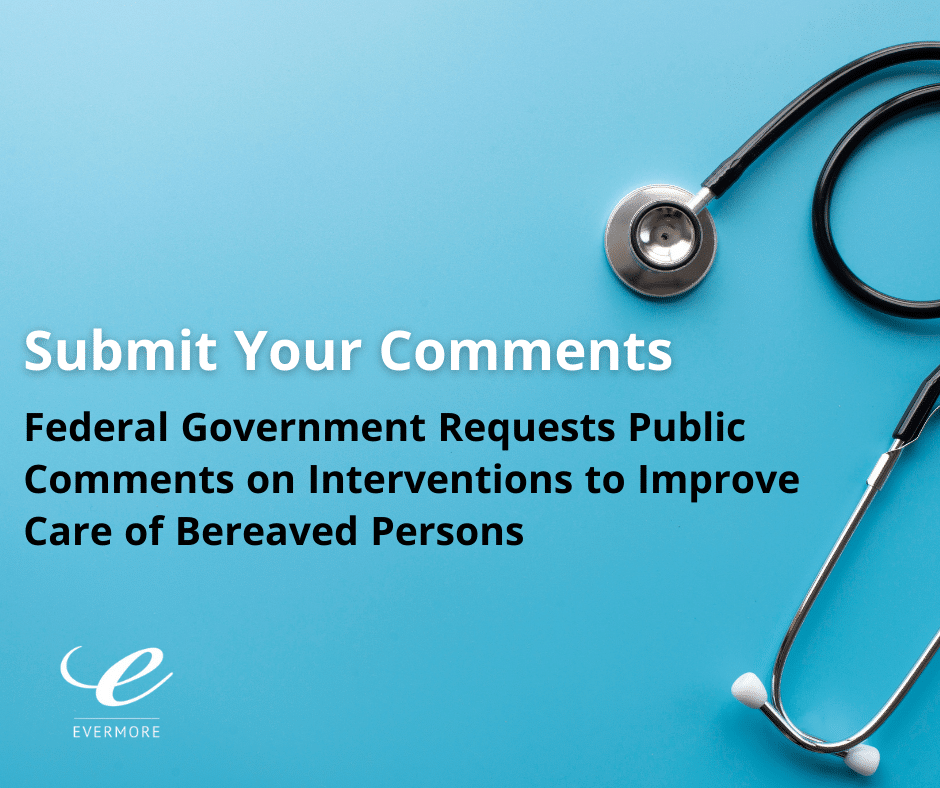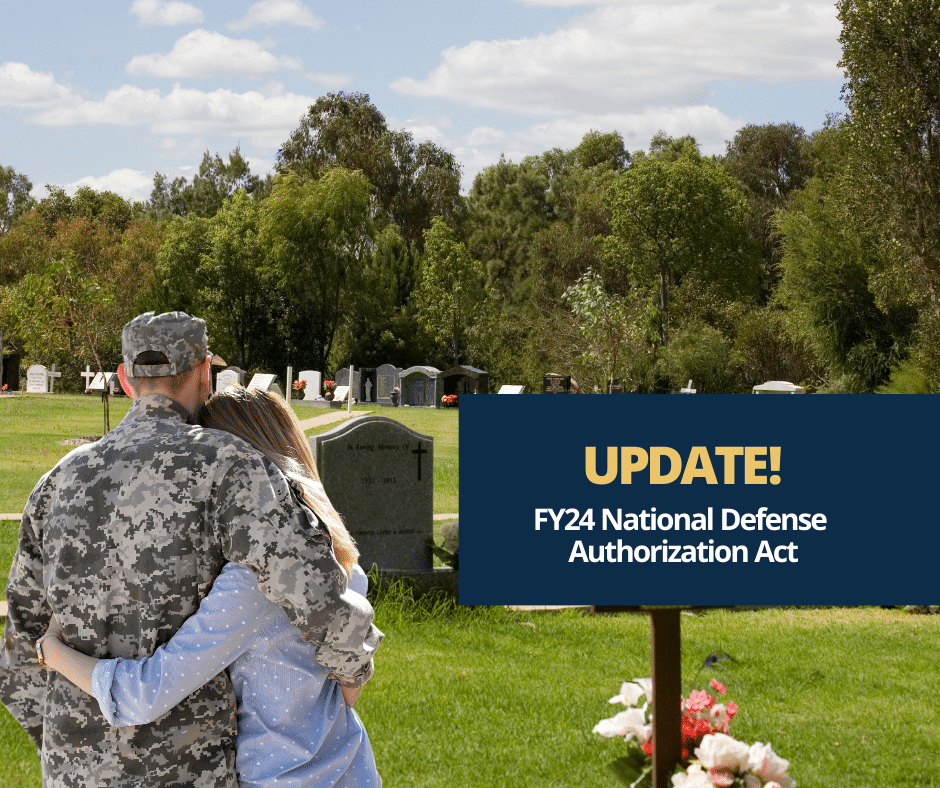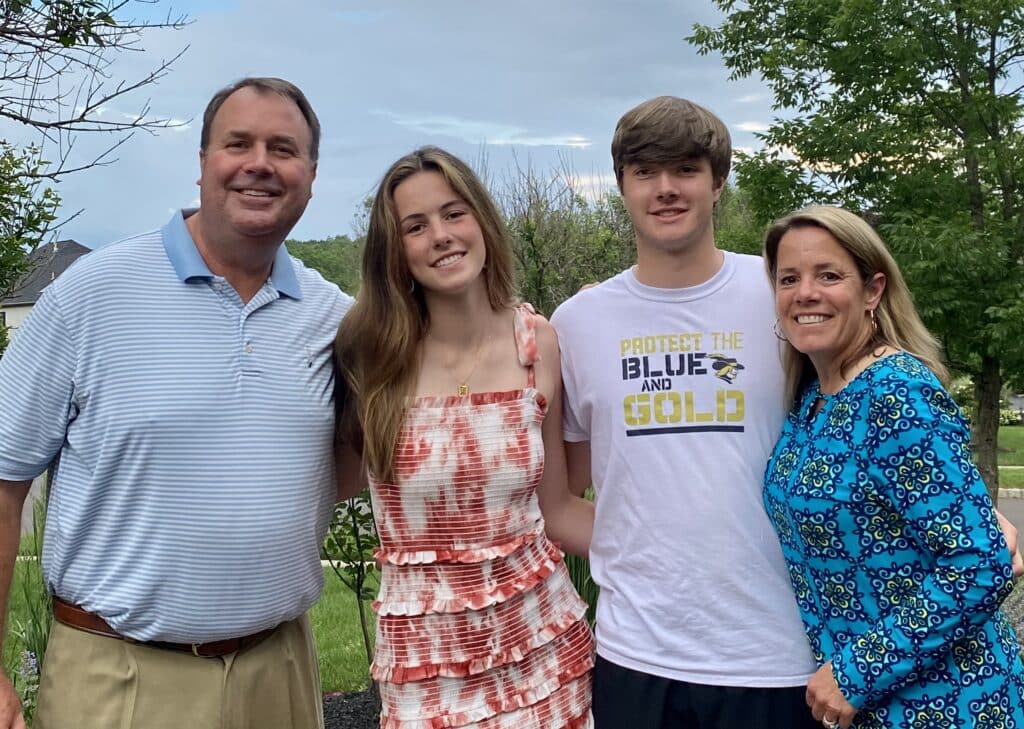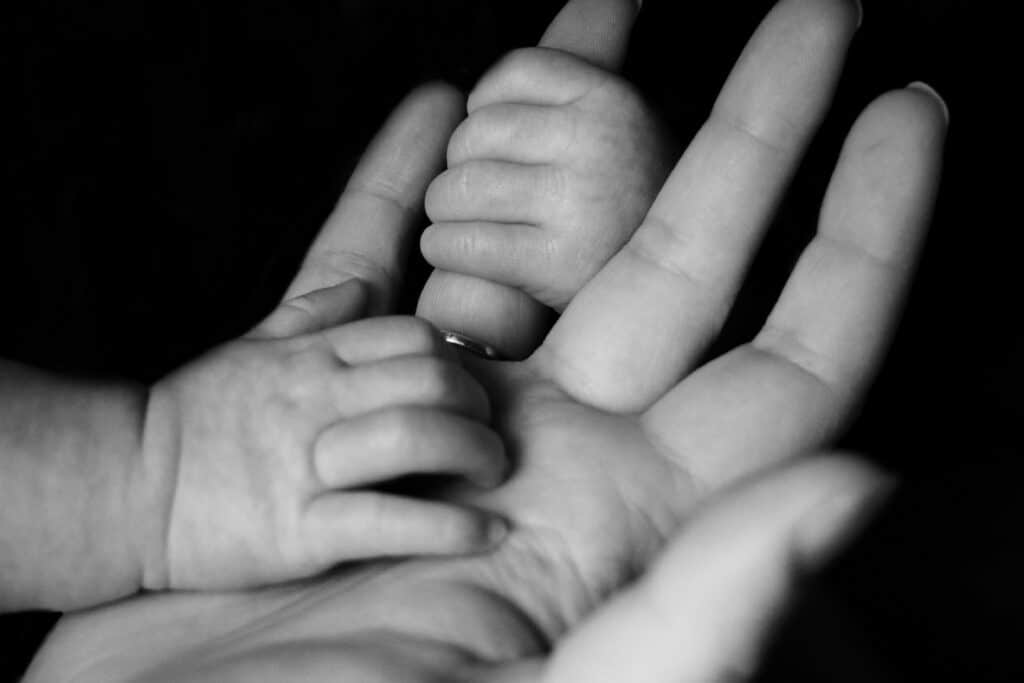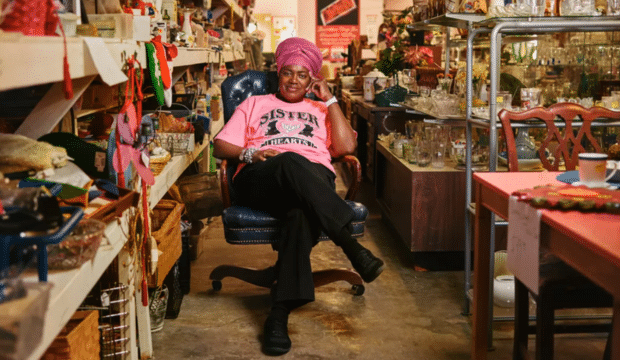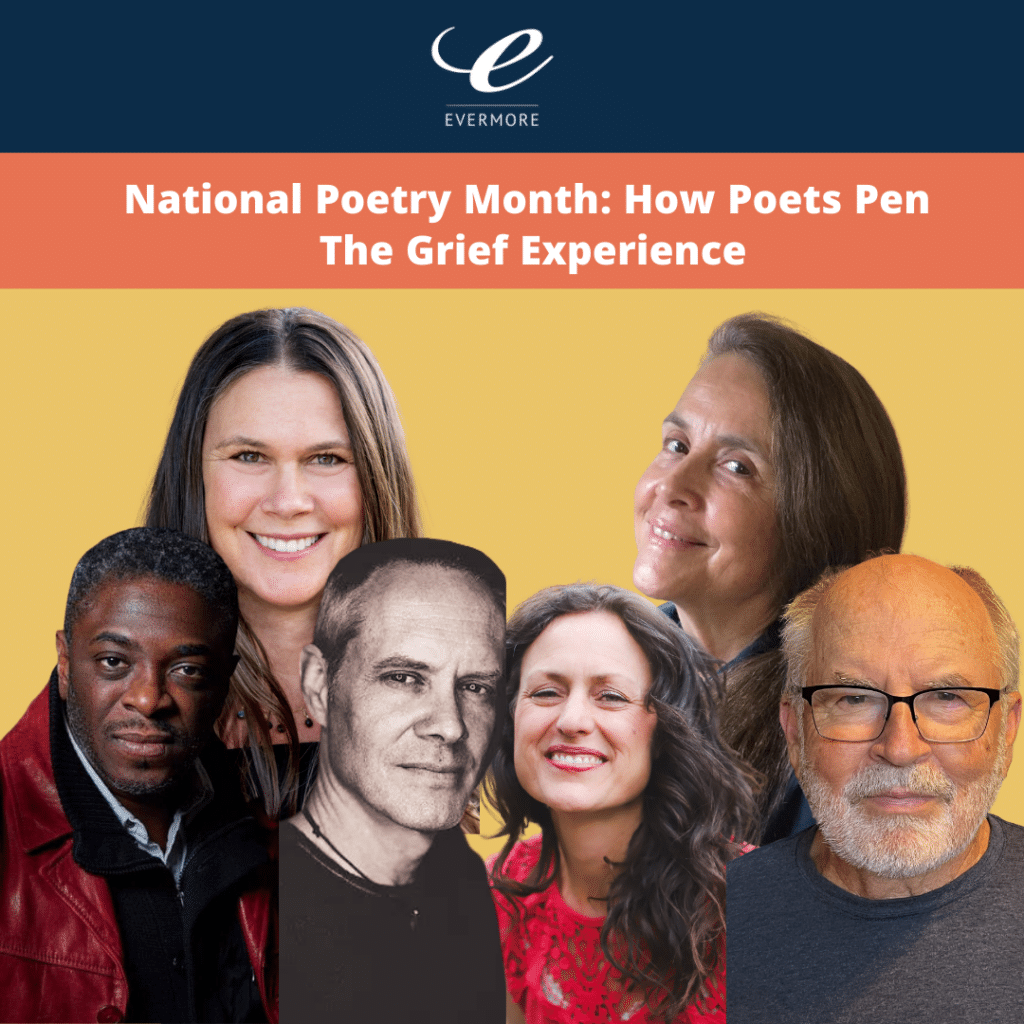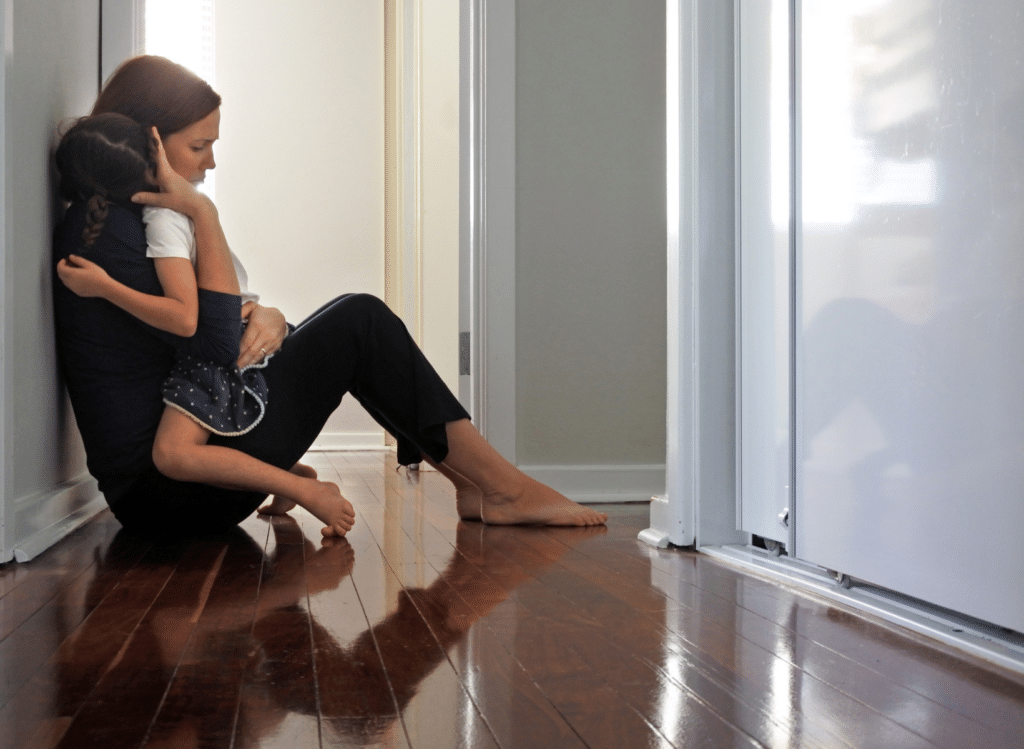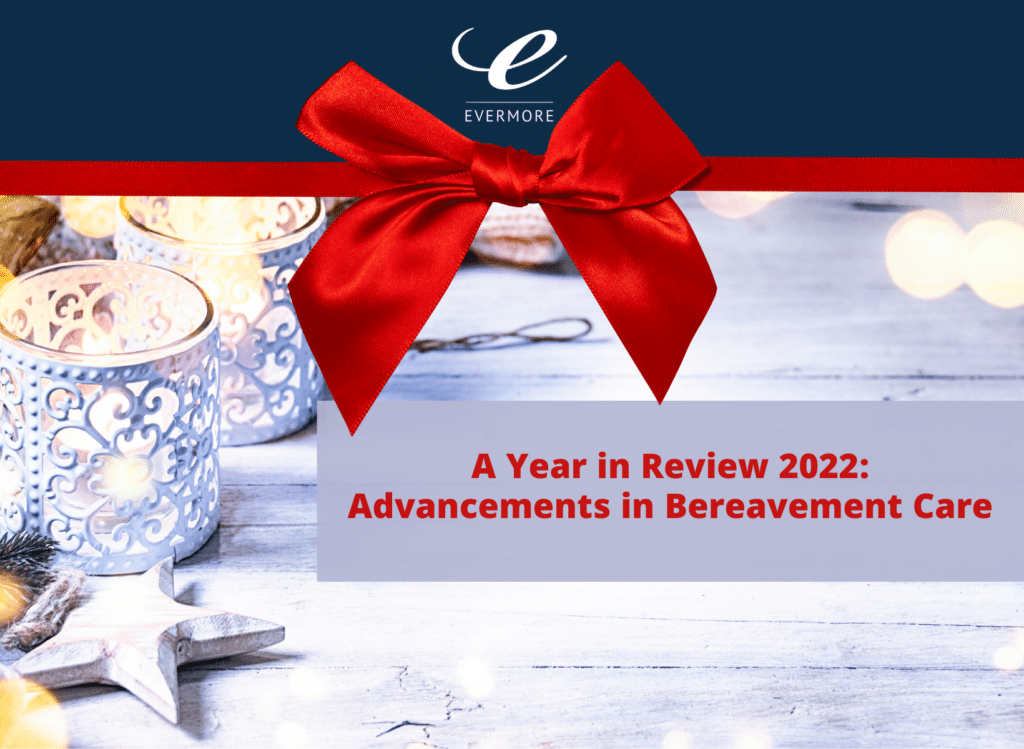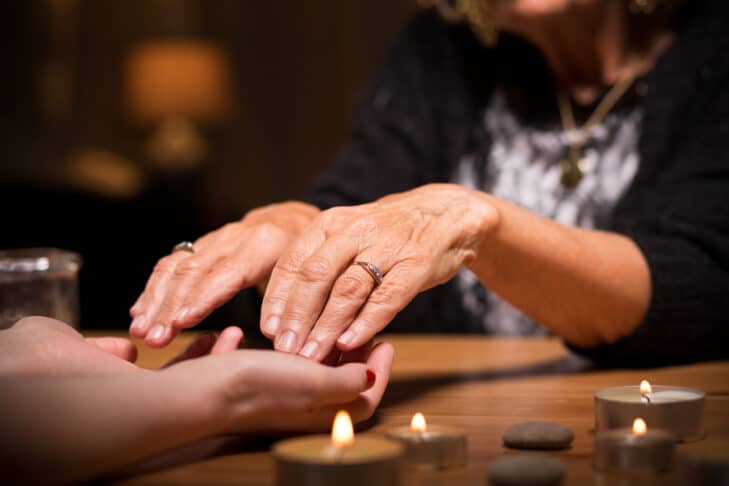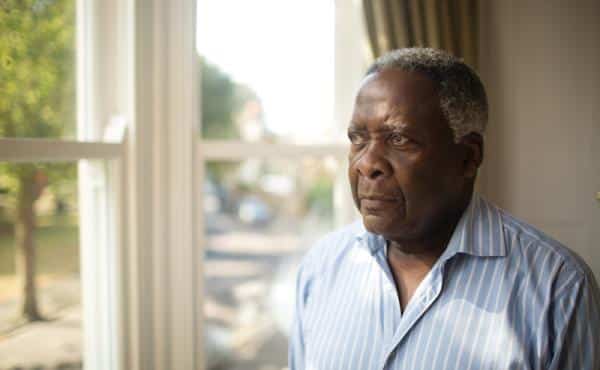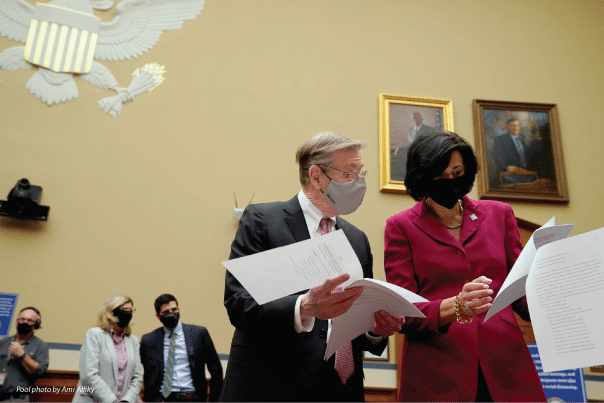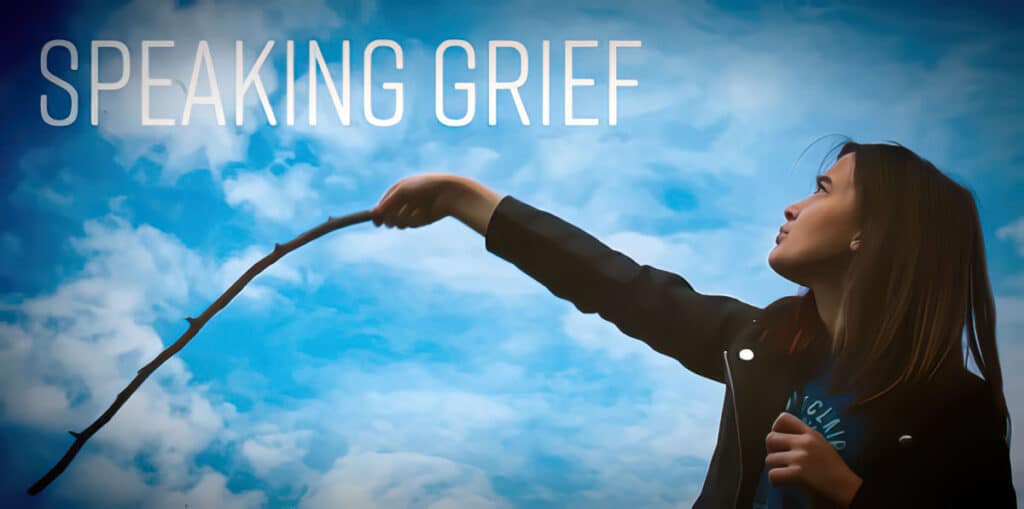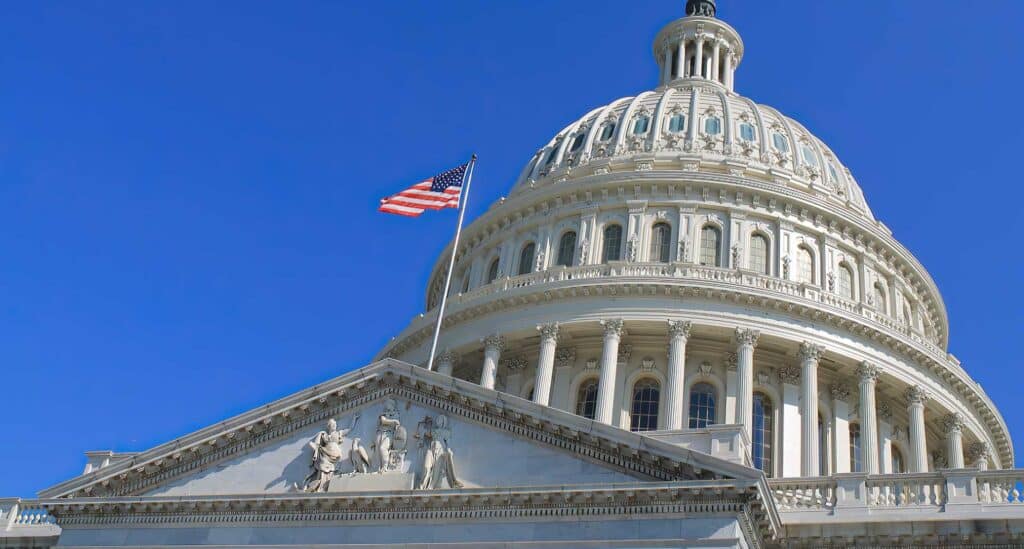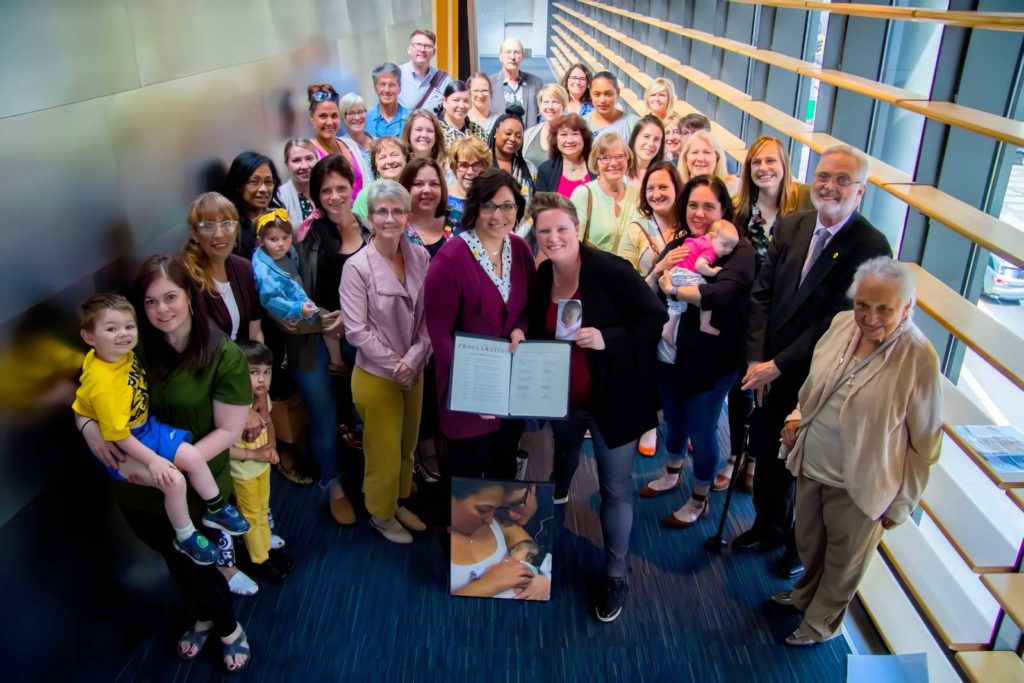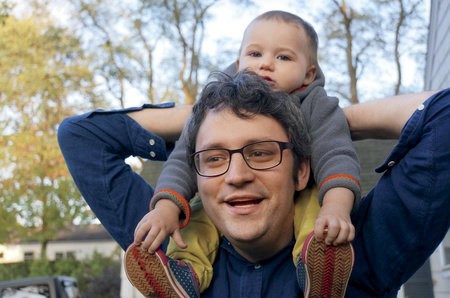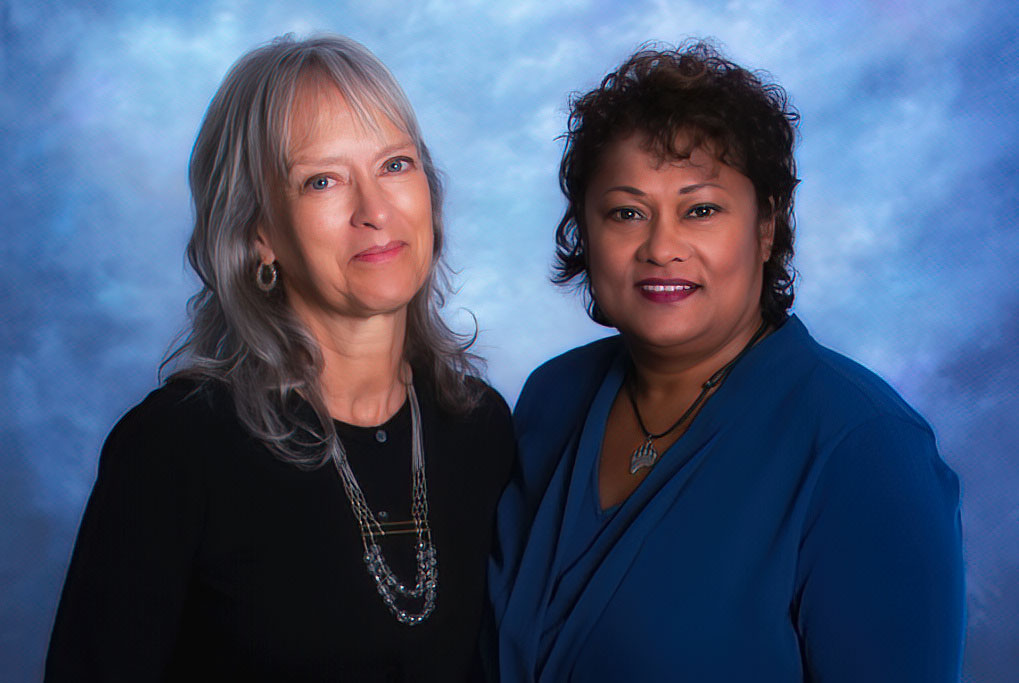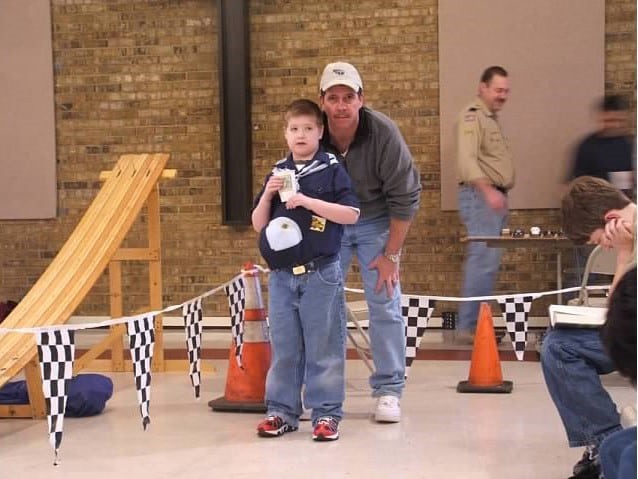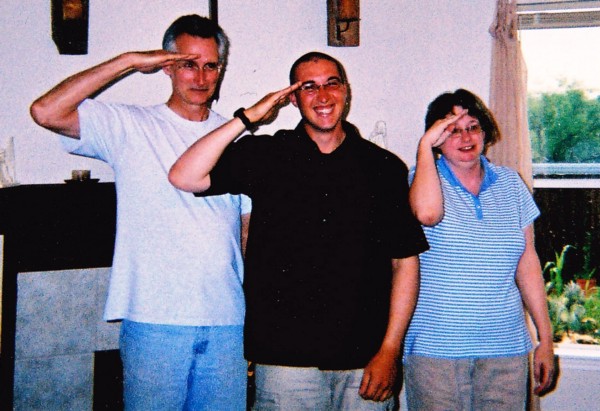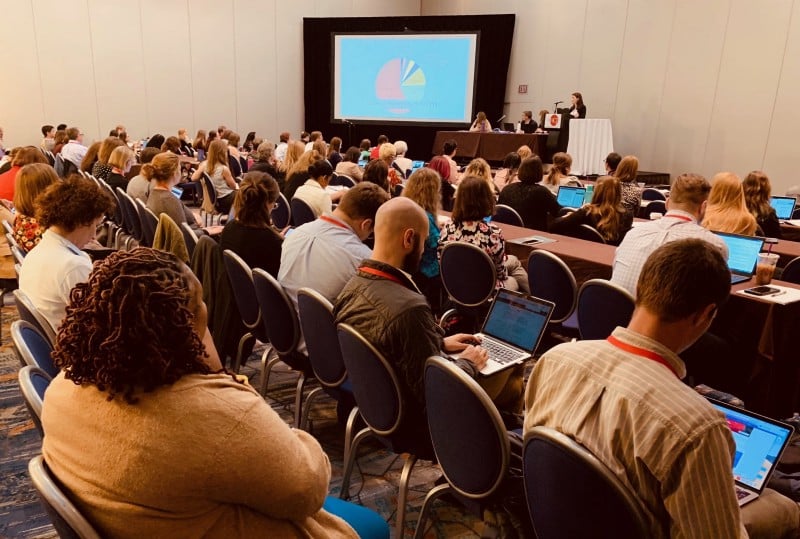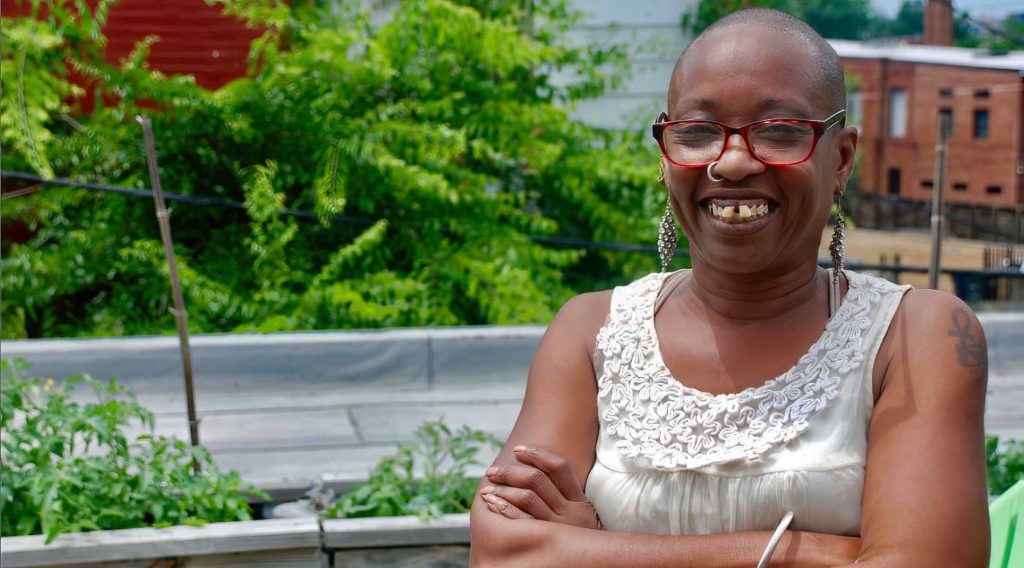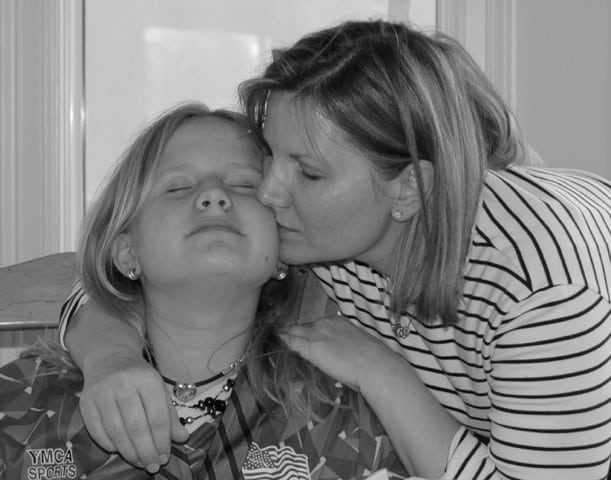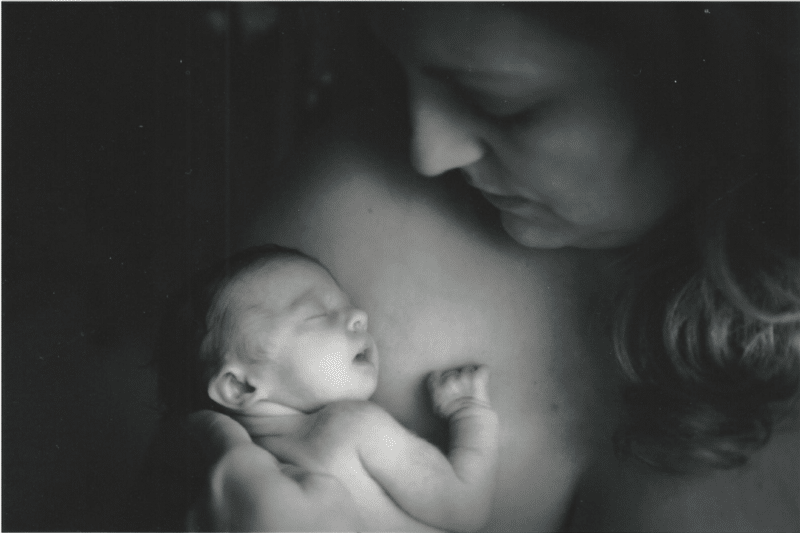Love is for Evermore: A Night of Soul, Storytelling, and Song
Love is for Evermore: A Night of Soul, Storytelling, and Song Has a nondescript encounter ever changed the trajectory of your life? For me, it was the fall of 2017, when I opened an email from a Washington Post lifestyle writer. Within weeks, Evermore’s work was...
Breaking Barriers: What the Nation’s First SSAB Report Reveals About Orphanhood and America’s Forgotten Children
Breaking Barriers: What the Nation’s First SSAB Report Reveals About Orphanhood and America’s Forgotten Children By Joyal Mulheron, Founder and Executive Director of Evermore Brian never expected to raise three children on his own. A veteran of the U.S. Armed...
When Grief Speaks, Love Answers: Honoring Olivia
When Grief Speaks, Love Answers: Honoring Olivia How one girl’s love and spirit continue to guide a family’s mission to support others through grief. By Reina and Mel Chan Our journey to start a family wasn’t easy. The road was long and often uncertain. We had...
Bo-Hawg & Evermore, A Love Story & A Fish Fry: A Deep-Fried Meaning Found in Grief
Bo-Hawg & Evermore, A Love Story & A Fish Fry: A Deep-Fried Meaning Found in Grief How Bo-Hawg owner Greenberry Taylor injected Evermore into Pig Fish's DNA and the culminating Fryin' Up Good Vibes Fish Fry in Alabama that we've all been waiting for. Grease...
Supporting Grieving Families Through Rare Disease Loss: The Traces of Trinity Foundation’s Mission of Hope
Supporting Grieving Families Through Rare Disease Loss: The Traces of Trinity Foundation’s Mission of Hope By Crystal Jennings In 2004, my husband Darrell and I began our life together as husband and wife, excited for the journey ahead. Early on, we knew we wanted...
Grief, In Our Own Words: Thirty-Six Hours of Forever: A Mother’s Story of Love and Loss
Grief, In Our Own Words: Thirty-Six Hours of Forever: A Mother’s Story of Love and Loss From Joy to Loss: The Heartfelt Journey of Beatrice Kathryn By Rachel Alder Half an hour before our OBGYN entered our tiny clinic room that day, my wife and I shimmied past her...
From Pain to Expression: The Transformative Power of Poetry for Grieving, Systems-Impacted Youth
From Pain to Expression: The Transformative Power of Poetry for Grieving, Systems-Impacted Youth By Nebeu Shimeles “She wore her grief, loosely like a battered, faded shawl draped around her shoulders. She had nothing to say.” – Arundhati Roy, The God of Small...
Launching the Lived Experience Bereavement Research Network: A National Dialogue on Grief, Medicine, and Future Bereavement Research
Launching the Lived Experience Bereavement Research Network: A National Dialogue on Grief, Medicine, and Future Bereavement Research By Joyal Mulheron Over the last decade, few topics have been more passionately debated among members of the grief community than the...
An Unprecedented Review: 12,000+ Bereavement Studies to Improve the Quality of Future Healthcare for Bereaved Persons
An Unprecedented Review: 12,000+ Bereavement Studies to Improve the Quality of Future Healthcare for Bereaved Persons By Joyal Mulheron On Thursday, March 13, the Agency for Healthcare Research and Quality (AHRQ) released the nation's first report on the quality...
Honoring the Legacy of Emily Westfal: A Social Work Pioneer in Bereavement Care
Honoring social worker Emily Westfal's legacy of compassion in bereavement care—advocating for grief support and building a stronger community.
Memories In Ink: Letters to Our Loved Ones
By Jena Kirkpatrick In honor of National Poetry Month this April, Evermore invites you to express your memories in ink by writing and sharing a letter poem in honor of your loved one. Share it on your favorite social media using the hashtags #evermoreforall,...
Grief Doesn’t Have a Timeline: Letting Go of Society’s Expectations
Grief Doesn’t Have a Timeline: Letting Go of Society’s Expectations By Nora Biette-Timmons It’s almost a rite of passage, googling “stages of grief” when you’re grieving, supporting a loved one who’s grieving, or preparing to enter a period of grieving. The idea...
Grief and Bereavement Books for Kids and Teens
This list was developed in collaboration with Dr. Donna Gaffney, an expert in children's grief. A tragic event is difficult to comprehend for even the most mature, knowledgeable adult. For children and adolescents faced with trying to understand such an...
SAMHSA Releases Its First Grief and Bereavement Fact Sheets
SAMHSA Releases Its First Grief and Bereavement Fact SheetsThe Substance Abuse and Mental Health Services Administration, or "SAMHSA," has released its first grief and bereavement fact sheets. These fact sheets represent a substantial step forward in the U.S....
With Your Generous Support, We Are Making the World a More Livable Place for All Bereaved People
With Your Generous Support, We Are Making the World a More Livable Place for All Bereaved People By Joyal Mulheron Ten years ago, no one talked about bereavement‘s impact on our nation or our lives. Today, bereavement is highlighted in major media outlets, in...
10 Years of Making the World a More Livable Place for All Bereaved People
Evermore is Making the World a More Livable Place for All Bereaved People Fourteen years ago today, I was sitting on my couch, trying to make sense out of what just happened to our family. Our terminally ill daughter, Eleanora, had died a few weeks prior....
Five Tips to Get Through the Holidays
The holidays can be a difficult time for many people, for many reasons. There are the expectations — to participate fully, to spend profligately, to performatively have a good time. But the holidays can also be a wonderful, emotionally fulfilling period of quality...
Evermore’s Favorite Holiday Recipes
As the holidays approach, we often find ourselves looking for recipes that evoke warmth, nostalgia, and a little bit of comfort. Whether it's a creamy mac and cheese, a delicious bread, or a family recipe passed down through generations, these dishes bring people...
Make Orphaned Children a Priority for the Social Security Administration: Submit Your Comments Today
Right now, the Social Security Administration (SSA) is soliciting public comments on the use and conversation of Social Security benefits and Supplemental Security Income (SSI) payments for foster children, including those who are orphaned. Your comments are...
Report to Congress: An Overview of Bereavement and Grief Services in the United States
With Evermore's support and encouragement, Congress passed the Consolidated Appropriations Act of 2023, directing the U.S. Department of Health and Human Services to produce a report on the need for bereavement and grief services in the United States. Last week,...
How to Care for a Loved One’s Remains When ‘Conventional Death Care Feels Like Another Form of Forced Assimilation’
By Nora Biette-Timons In November 2021, Viennia Lopes Booth went to visit her dad for the first time in a couple of months. When he opened the door, she was “shocked,” she shared during a death care conference in September. “I hadn't seen him in two months, and he...
Grief, Bereavement, and Chosen Families in the LGBTQIA+ Community
By Nora Biette-Timons Earlier this summer, throughout the month of June, we celebrated the joy of queerness, the joy of embracing one’s authentic self and sexuality. We hold this love and delight in our hearts throughout the year—but we also remember that public...
You Were Bigger Than the Whole Sky
You Were Bigger Than the Whole Sky By Nora Biette-Timons In “You’re On Your Own, Kid,” a ballad about growing up and feeling alone, pop superstar Taylor Swift sings, “So make the friendship bracelets, take the moment and taste it, you’ve got no reason to be afraid…...
Hip Hop Therapy Annual Showcase in the Bronx, New York
By Nora Biette-Timons Hip hop therapy” was first conceptualized in the 1990s, by Dr. Edgar Tyson. In a 2002 academic paper, he wrote that “treatment innovations that are culturally sensitive and demonstrate promise…are of significant importance to practitioners...
Cherokee Nation Art Classes and Art Show in Tahlequah, Oklahoma
Cherokee Nation Art Classes and Art Show in Tahlequah, Oklahoma In 2022, Evermore recognized the alarming trends in childhood bereavement and had to act. After partnering with Penn State and the University of Southern California to release America's Forgotten...
Got Questions? National Call To Discuss the U.S. Government’s First Report on Grief & Bereavement
Got Questions? National Call to Discuss the U.S. Government's First Report on Grief & Bereavement We're Here to Answer Your Questions: Join Us! ]In May, the Agency for Healthcare Research and Quality (AHRQ), a little-known government agency, released its draft...
Advancing Bereavement Leave for All Students in Higher Education
Advancing Bereavement Leave for All Students in Higher Education Each year, over 4 million students in higher education are socially and academically impacted by bereavement Losing a loved one at any juncture can alter the course of a life; navigating grief is a...
Who Owns Our Stories?
Who Owns Our Stories? The Fever Pitch and the Harm of True Crime By Nora Biette-Timmons There doesn’t appear to be one singular moment when America went true-crime crazy. In the 1990s and early 2000s, tabloids and popular magazines published what they...
5 Things You Didn’t Know About the Funeral Industry
When someone close to us dies, we’re hardly in the right frame of mind to handle logistics and practical matters. Yet, often, this is the first thing we’re forced to confront. There’s the matter of the deceased’s body and how it will be handled, but also funeral...
PAUSE: Producing Safe, Culturally-Specific, Expert-Informed Grief and End-of-Life Resources Across America
PAUSE: Producing Safe, Culturally-Specific, Expert-Informed Grief and End-of-Life Resources Across America How three Black-led grief organizations are building resources for communities of color through education and conversations. By Nora Biette-Timmons[ In the...
Beyond Beats: Hip-Hop’s Journey Through 50 Years of Grief
Beyond Beats Hip-Hop's Journey Through 50 Years of Grief By Nora Biette-Timmons Last year, American culture celebrated 50 years of hip-hop. At the 2023 Grammys, some of the genre’s most legendary performers—Missy Elliot, Busta Rhymes, Ice T, Method Man—performed...
Evermore’s Comments on Interventions to Improve Care of Bereaved Persons
Evermore Submits Comments to AHRQ on Interventions to Improve Care of Bereaved Persons Bereavement’s long-standing absence from public policy debates and national health priorities, along with its newfound urgency, requires sound leadership and an aggressive agenda...
Federal Government Requests Public Comments on Interventions to Improve Care of Bereaved Persons
Federal Government Requests Comments on Interventions to Improve Care of Bereaved Persons In 2023, and as a result of your hard work, Congress directed The Agency for Healthcare Research and Quality (AHRQ) to establish an evidence base for what constitutes...
Update! Congress Recedes on Bereavement Leave in the FY24 National Defense Authorization Act
Congress Recedes on Bereavement Leave in the FY24 National Defense Authorization Act Over the last few weeks, many of you called your U.S. Senators seeking their support in allowing the U.S. Armed Forces to return home when their parents die. This bereavement leave...
We Have Achieved So Much Because Of You
We Have Achieved So Much Because Of You Ten years ago, no one talked about bereavement‘s impact on us or the trajectory of our lives. Today, bereavement is highlighted in major media outlets, in the halls of Congress, and in our communities. Thousands of people...
Visionary & Trailblazing Attorney Kenneth Feinberg Offers Five Reflections On Bereavement
Visionary & Trailblazing Attorney Kenneth Feinberg Offers Five Reflections On Bereavement After serving thousands of families, victim compensation attorney Kenneth Feinberg offers five reflections on grief and bereavement. By Joyal Mulheron with...
Advocating for Change: How One Man Secured Bereavement Leave for Hundreds of Thousands of Johnson & Johnson Employees Globally
A Grieving Parent Turns Pain into a Purpose Following the death of his teenaged son, Blake, Tom Barklage fought to secure bereavement leave for Johnson & Johnson employees around the world By Maddie Cohen After his son Blake died, Tom Barklage took time...
Evermore Advocates for Bereavement in National Maternal & Child Health Program
The scale and reach of the Maternal and Child Health (MCH) Block Grant—with current appropriations of $712,700,000—is indisputable, as 93 percent of pregnant women, 98 percent of infants, and 60 percent of children are touched. While impressive progress has been...
National Bereaved Parents Awareness Month: Living with Grief
By Cynthia Prestidge Grief teaches a mother lessons she never wanted to learn My husband Brad came home to tell me what he had learned minutes earlier. Sarah is gone… Our Sarah-Grace. Our beautiful 24-year-old daughter. Dead. With three words and within mere...
Five Books on Grief and Loss
By Terri Schexnayder Five new releases have landed in bookstores and audible programs recently. Each one delivers the topics of grief and loss through unflinching honesty with the author’s personal story—some even include moments of humor. We encourage you to read...
Pride Month Spotlight: Jason Edwards
By Jena Kirkpatrick Jason Edwards grew up in the small town of Graham in West Texas where being gay was not accepted. Pegged as the class ‘gay boy,’ he was bullied relentlessly. His dad tried to spark his interest in sports and Edwards recalled being out on the...
ACT NOW: Is Grief Normative or a Diagnosable Condition?
Open for comment until 11:59 p.m. Eastern Time on Friday June 2, 2023 One of the most hotly debated topics in bereavement care is whether all grief is normative or a diagnosable condition. For the first time, the federal government is beginning to examine...
Even the Forgotten Lose Children
Forgotten by most of society, Maryam Henderson experienced two devastating events that ultimately changed her course: a 25-year prison sentence and the death of her son, Augustine. Maryam was serving her sentence at St. Gabriel’s Louisiana Correctional Institute...
Dr. Mom of 10 Recounts Her Grief After the Death of Her Foster Son
Kevin, a fierce protector of his nine siblings and Nancy and Ray’s son. A Bereaved Mother’s Day Dr. Mom, otherwise known as Nancy, is an unflappable mother of ten and leads her large family with grace, instilling a deep love for life in all her children. As a...
National Poetry Month: How Poets Pen The Grief Experience
Across America, powerful imagery and musical cadence ring out in coffee shops and onto the page during National Poetry Month. Launched by the Academy of American Poets in April 1996, the month-long recognition celebrates the poets' integral role in our culture and...
Distinguished Author & Poet Naomi Shihab Nye Shares Her Poem On Grief, “Old Friend”
Dear Friends unknown, We are joined together by so many things in grief. Maybe there’s a luminous cord connecting us through sleepless hours and hardest times. The poet Jack Ridl told me years ago, after my father died, “Grief is an ambush. When you’re least...
Renowned Poet Rosemerry Wahtola Trommer Honors the Nuances of Grief In Her Poem, “I Want to Listen to Your Absence”
Before my son Finn died, I already had a daily writing practice in place. The day he died was the first night I hadn’t written a poem in over thirteen years. And then I didn’t write at all for the first seven weeks after his death. I suppose on the surface then it...
National Poetry Slam Champion Regie Gibson Pens a Letter of Grief to His Father, “Letter to My Father”
Losing anyone in your life affects EVERYTHING in your life. Your perspectives shift. You question your own mortality. Losing someone close to you makes you feel like a raw nerve in a world of razor-wire. Everything hurts. Losing my dad just before becoming a...
Oklahoma Poet Laureate Nathan Brown Says Less Is More When Talking About Grief In His Poem “Nevertheless, It Moves”
I lost a best friend, fellow vagabond, and gifted poet to a long battle with cancer. We traveled and performed together for years. We joked over homemade-hotel-room drinks about how the $31 we raked in from the donations for the night’s house concert, or whatever...
Notable Poet Brady Peterson Speaks About the Acceptance of Grief In His Poem, “He Checks His Luggage”
First, I have lived long enough to have outlived most of the people who were important to me when I was young. My parents died years ago. My younger brother died three years ago. All but one of my aunts and uncles have died. Cousins have died. Many close friends...
Acclaimed Troubadour and Poet Beth Wood Writes About the Vulnerability of Grief In Her Poem, “LESS HEAVY THINGS”
My own loss and the deep grief that accompanies it brought about profound change in the way I experience creativity. Deep loss breaks you down in a way that also cracks you open. There is loss of control and surrender. Tears and sorrow pour out, but light also...
Five Important Questions About FMLA and Bereavement Leave
By Prerna Shah When a loved one dies, many family members seek bereavement leave to attend to family affairs, their grief, and sort through the many changes that invisibly unfold behind closed doors. It may be surprising to learn that most employees have no legal...
Good Ole’ Country Music Always Has a Place for Grief
By Terri Schexnayder Country music’s familiar heart-tugging lyrics of country-western ballads about cheating, love lost, and traveling roads in pickup trucks always seems to have a place for grief. Hits are littered with songs about love, death, grief, and faith as...
A Little-Known Economic Benefit for Bereaved Children
By Terri Schexnayder Often, when someone dies, we seek to support the grieving family in a meaningful way. In a sign of solidarity and love, we attend memorials or funerals, send condolences, prepare meals, and sometimes participate in athletic events or...
The Bereaved Parents — Who Are Presidents — That Lead Our Nation
By Terri Schexnayder For millions of people living in America, the death of a child is a tragedy that silently unites many, even presidents. President Joseph R. Biden Jr. has cited his son’s death, Beau, as motivation to run for president and has shared his...
In Black Communities, Homegoing Rituals Honor the Dead and the Living Through a Blend of African and Christian Traditions
By Brittiny Moore Whether at a small church, or one that seats thousands, Black funerals – or homegoing celebrations – are expressions of mourning that honor Black life, love, and community. Homegoing celebrations are a fixture in Black communities, and elaborate...
A Year in Review 2022: Advancements in Bereavement Care
In 2022, our community of supporters has grown by more than 50 percent for the second consecutive year. Our movement consists of people from every corner of America – from truck drivers to professors to homeschoolers and executives. We unite in solidarity to create...
Few Universities Offer Leave Policies and Grief Support for Bereaved Students
It was the beginning of her junior year at the University of South Carolina (UofSC) when Mairead Peters’ cousin unexpectedly passed away. Not only was Peters just getting settled into her new class schedule, she was now forced to navigate the school year while...
Dr. Emily Smith-Greenaway Shares Research on Bereavement’s Far-Reaching Impacts
Earlier this month, Evermore hosted a conversation with Dr. Emily Smith-Greenaway, a grief and bereavement researcher in California and associate professor of sociology and spatial sciences at the University of Southern California, to discuss her research on...
Three Very Different (Yet Similar) Stories of Pregnancy and Infant Loss
Since October is Pregnancy and Infant Loss Awareness Month – which aims to bring more acknowledgement and recognition to the grief, stress, and hardship parents experience after a miscarriage or the death of a newborn baby – we decided to share three stories of...
Can Working with a Medium Help You Connect With a Lost Loved One?
Jena Kirkpatrick was hesitant to visit a medium after experiencing the death of her 19-year-old son, Ellis McClane, who died in a car accident in 2011. But five years after her loss, Jena decided to take a chance and scheduled an appointment. “That’s something...
The Bereavement Benefit Most Women Don’t Know About (But Should!)
As many as half of all pregnancies end in miscarriage. Even though 87 percent of women have experienced a miscarriage while employed, an alarming number of women aren’t aware that the Family Medical Leave Act (FMLA) allows for time off from work after a miscarriage...
Toni Miles’ Ground-Breaking Research in Bereavement Prevalence
Earlier this month, Evermore hosted a conversation with Toni Miles, M.D., Ph.D., a grief and bereavement researcher in Georgia and Morehouse School of Medicine adjunct professor, to discuss the Centers for Disease Control and Prevention’s (CDC) Behavioral Risk...
Bereavement Is Not Simply a Mental Health Issue
Experiencing the death of a loved one can be one of the most traumatic and painful experiences someone can face in life. Such losses can be overwhelming, resulting in intense and difficult emotions of sadness, emptiness, shock, and despair. The bereavement process...
How Many People in America Have Lost a Loved One?
Just How Many People In America Have Lost A Loved One? The Centers for Disease Control and Prevention (CDC) is one of the nation’s most-trusted, science-based sources of data on public health in the United States. For more than 70 years, this government agency has...
Why Is Our Nation So Far Behind in Grief and Bereavement Services and Policies?
Why Is Our Nation So Far Behind In Grief and Bereavement Services and Policies? National Grief Awareness Day — observed annually on August 30 — was created by Angie Cartwright, who’s experienced immense grief in her life after the loss of her baby sister, newlywed...
With Teacher Shortages, Community Programs for Grieving Kids Are More Important Than Ever
With Teacher Shortages, Community Programs for Grieving Kids Are More Important Than Ever With the back to school season in full swing, all of us with students in our homes have probably heard about the critical shortage of teachers. Reports say that our country...
The Time Is Now to Invest in Grieving Young People
The Time Is Now to Invest in Grieving Young People Recently, NPR covered a fascinating club for teenage students experiencing the death of a parent. The article follows the story of a high school sophomore named Elizabeth, whose father passed from COVID-19 last...
Calling All Working Parents! Congress Is Listening
Close the Loophole! - Universal Paid Leave Should Include Bereavement Leave Due Monday, August 15th! Earlier this year, you made phone calls, sent emails, called your friend in order to add paid bereavement leave to our nation’s policy conversations. You did it and...
Become Part of the Solution to America’s Bereavement Crisis
Grief is a powerful dual-edged emotion that can result in a dull, undulating pain which can be paralyzing and suffocating or, if channeled appropriately, can swell into rage and anger that moves each of us — or societies — to do things that once seemed impossible....
Concentric Circles of Grief: DC Exhibit Honors COVID-19 Victims
For 25 years, visual artist Suzanne Brennan Firstenberg has comforted families in mourning as a hospice volunteer. And with each new family she’s consoled came lessons about the scope of grief, its impact, and the lack of spaces for people to express their deep...
Tell Congress to Protect the Jobs of Newly Bereaved People
Tell Congress To Protect Jobs for Newly Bereaved Families Imagine how many families have lost a loved one in the past year. Our nation’s collective grief is inescapable and it has impacted all of us. Today, there are no federal legal protections for newly bereaved...
White House Considers Bereavement Leave: ACT NOW!
White House Considers Bereavement Leave: ACT NOW! One of the most glaring results of COVID-19 is the lack of systemic bereavement care in the United States. Most Americans who have lost a loved one have no legal right to take leave, paid or unpaid. And this...
The Fierce Urgency of Now: Modernizing Bereavement Care
Dr. Martin Luther King, Jr. delivering “the fierce urgency of Now” during the I Have a Dream speech taken August 28th, 1963, Washington D.C, United States. The Fierce Urgency of Now: Modernizing Bereavement Care Today, armed American troops guard the heart of...
New Documentary Spotlights Grief and How to Talk About It
The creators behind a new documentary set to air on public media channels across the country in May want to start a national conversation about a topic that many shy away from — grief. The goals for “Speaking Grief” are twofold: to validate the experience of grief...
Bereavement Blitz: House Leads, But Will Senate Follow?
For the first time in history, key federal health agencies will report what activities, if any, they are doing to advance bereavement care. Photo by Bob Bowie on Unsplash As Congress shut its doors and fears of COVID-19 swept the nation, a small group of families...
Evermore Brings the Fight to Capitol Hill — Will They Listen?
For too long, too many have considered bereavement as simply a mental health issue. When a family member or loved one dies, those grieving experience a deep sadness as their lives are changed fundamentally forever. Conventional wisdom tells us a bereaved individual...
A Year in Review 2019: Steps Forward in Bereavement Care
As another decade comes to a close and Evermore marks its fifth year working to improve bereavement care in the United States, we have reason to celebrate 2019. Here at Evermore, we made big strides toward building our team and raising awareness about the need to...
New Amsterdam Episode Highlights Parents’ Grief After Losing an Infant
How CuddleCot is changing the care system for stillbirth families The scene opens with a woman, curled up on a hospital bed. A doctor enters, rolling in a white bassinet. “This is called a CuddleCot,” he explains. “It’s a special bassinet that keeps stillborn...
Son’s Death Launches Father’s Re-Education into the Dangers of Teen Driving
After his son Reid died in a car crash, Tim Hollister helped transform Connecticut’s teen driving laws. The provisions include earlier curfews, no electronic devices, a two-hour teen driving safety course for both teens and their parents and restrictions on who can...
Two Dads, One Mission: Better Bereavement Leave
Kelly Farley and Barry Kluger are the dads behind the Parental Bereavement Act. Evermore is dedicating this Father’s Day week to bereaved dads who will always be fathers. Kelly Farley and Barry Kluger met because of a horrible coincidence: They knew what it was...
New Memoir Recounts One Father’s Experience Losing His 2-Year-Old Daughter
In a new memoir, Once More We Saw Stars, father Jayson Greene vividly recounts the raw feelings after his two-year-old daughter Greta died and his continuous journey through grief. Evermore is dedicating this Father’s Day week to bereaved dads who will always be...
Camp Erin Helps Bereaved Youth Find Community and Hope’
Camp Erin is the largest national bereavement program for kids and teens ages 6 to 17 who are mourning the death of someone close to them. Photo courtesy of Frank McKenna. Evermore is giving focus to younger siblings who have suffered the death of a brother or...
Should You Go to a Medium?
In one study grieving parents ranked support groups and psychics as the most helpful in coping with their grief. Photo courtesy of Yeshi Kangrang. An expert on grief says bereaved parents shouldn’t discount the benefits One of the most difficult aspects of dealing...
Medical Examiner Shares His Experiences with Death and Grieving Families Who Want Answers
A leading expert in child death investigations talks about his unlikely career. A parent’s response to grief comes in many forms. And, after decades as a medical examiner, Dr. Thomas Andrew, among the country’s leading experts on child death, knows all about that....
National Alliance Raises Awareness About What Grieving Kids Need
47% of surveyed kids under age 18 believe their life will be harder than it will be for other people. Photo by Chinh Le Duc on Unsplash. Evermore’s next few stories will have a “Back to School” theme focusing on both younger children and college-aged students. We...
Getting Bereaved Kids the Help They Need
Julie Kaplow, on the left, serves as the Director of the Trauma and Grief Center in Houston, Texas, will be launching the Handle with Care program for children who have witnessed a death. In August we are focusing on “Back to School” at Evermore. We are giving...
Two Grieving Moms Fight to Protect Students Abroad
Two grieving mothers seek efforts to bring transparency, safety to college abroad programs Ros Thackurdeen remembers the hype as she sat through a college study abroad session with her youngest son Ravi at Swarthmore University. “It was pretty exciting,”...
Am I Still a Father? Questions that Haunt Parents After the Death of a Child
June 2013, during recovery from what was supposed to be a routine heart catheterization to assess his heart condition, Ron Kelly’s son’s heart failed. Doctors weren’t able to revive 16-year-old Jon. Today Ron helps other grieving fathers, particularly those in the...
Bea’s Law: Two Bereaved Parents Fight for (and Win!) Bereavement Leave for Seattle City Workers
Bea’s parents — Rachel and Erin Alder say they are “extraordinarily pleased” by Seattle City Council’s unanimous vote for paid bereavement leave and were thankful for the support they received throughout the process. City employees no longer face impossible choice:...
“He Wants Me to Salute Him Back: Bereaved Parents Create Network to Support Those Who’ve a Lost Child in Military Service
Bryan Burgess was killed in action during a 2011 deployment to Afghanistan just 16 days before he was scheduled to return home — a few weeks shy of his 30th birthday. Telling and re-telling the story of his son’s life and sacrifice pulled Terry Burgess from deep...
A Legacy of Protecting Others: The Complicated Layers of Grief for Survivors of Military Death
Bryan Burgess (center) was killed in action during his final 2011 deployment to Afghanistan just 16 days before he was scheduled to return home — a few weeks shy of his 30th birthday. His parents Terry and Beth created Gold Star Parents retreat and network...
Trauma Expert Trains Journalists to Responsibly Cover Child Deaths and Public Grief
Child deaths, especially those that occur in mass tragedies, are the subject of significant news coverage. Frank Ochberg, chairman emeritus of the Dart Center for Journalism and Trauma at Michigan State University, said that journalists have an important role to...
The Child Death Beat: One Reporter’s Decades Covering Child Death and Consumer Product Safety
Photo courtesy of Cynthia H. Craft. An award-winning USA Today reporter talks about why she’s covered child death for so long It’s been nearly 23 years, but USA Today reporter Jayne O’Donnell won’t ever forget the moment. Jayne O’Donnell, health policy reporter,...
Spreading the Word About the Aftermath of a Child’s Death
Photo courtesy of AbsolutVision on Unsplash. Evermore’s founder to speak at journalism conference Raising the visibility about the long-lasting effects on parents and siblings after a child dies is a central goal for Evermore, and Joyal Mulheron, Evermore’s founder...
Texas Researchers Examine the Consequences After a Child Dies
“Don’t Lean Into The Brokeness,” Joyal Mulheron, The Huffington Post, July 19, 2017. Child death ‘more common’ than many realize, hits black Americans disproportionately The connections we form with our family and friends benefit our mental health, physical health...
Life Altering, Life Ending: The Experience of Losing a Child
When a child dies, what happens next makes all the difference. Evermore works to de-stigmatize the issues bereaved parents face and advise employers, law enforcement, schools and health care about what grief stricken families need to survive one of the worst...
Parents Grapple with More than Heartbreak and Funeral Plans
When a child dies, what happens next makes all the difference. This article brings focus to the cascading consequences of parent grief that our nation’s lawmakers and changemakers can do something about. Photo by Gus Moretta on Unsplash. From job losses to social...
Choosing to Try: One Mother’s Journey After Her 24-Year-Old Daughter’s Death
Cynthia with Sarah-Grace. Grief teaches a mother lessons she never wanted to learn My husband Brad came home to tell me what he had learned minutes earlier. Sarah is gone… Our Sarah-Grace. Our beautiful 24-year-old daughter. Dead. With three words and within mere...
When a Child Dies, What Happens Next Makes All the Difference
Mulheron left her career to immerse herself in the science surrounding the fallout of losing a child at any age or cause. She then started Evermore — a nonprofit to change the national response when a child dies. Evermore organization will tackle why and how More....




